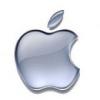-
Posts
9908 -
Joined
-
Last visited
-
Days Won
548
Content Type
Profiles
Articles, News and Tips
Forums
Everything posted by Hervé
-
The best is to obtain the CPU T Junction value off the Intel web site (values differ between CPU families) and the edit the Tjmax value in /E/E/IntelCPUMonitor.kext. Eg: http://ark.intel.com/products/29761/Intel-Core2-Duo-Processor-T7500-(4M-Cache-2_20-GHz-800-MHz-FSB) Just did it on my T7500-based D630 (Tjmax=100) and the iStats goodies now report proper T° readings: idling in the low 40s°C and up to 70s°C on high load (similar readings in Win7).
-
Hi, what system? What specs?
-
Ok, but getting hold of EDP 1.9.2 is not straighforward any more. I followed the EDP3 documented process to re-install SL (up to 10.6.8) on external USB drive and it worked smoothly and without hiccups for my D620+D630. To me, the latest method is totally "kosher" for SL too. EDP3 supports Snow Leopard, so it's sort of "universal" now.
-
Sure, our Latitude laptops are ageing machines by now, but you can get a T7200 or T7400 for about $20...
-
Good stuff. I have to try Lion on my Vostro 200S again. I was able to set it up with SL last year, but that was with a legacy kernel (ModCD method oblige), had no sound, no wifi (unsupported D-Link card) and I found no kext to support the ATI X1300 Pro 256Mb graphics card. This brings things to a different light now. Do you know the motherboard model in the 755? It's a revised Foxconn G33M in the Vostro 200, identical to the Inspiron 530, for which there might be a DSDT table somewhere.
-
Well, I'm on a dual boot HDD with Win7/Lion. No problem in Win7, I can use BT. The D630 is also my work computer for which I use a separate HDD with XP. And that's where the problem was: in XP, I always disable the BT radio when I'm not using it. You were absolutely right about the F/W flash because I enabled the radio in XP, shutdown the laptop, rebooted on my Lion HDD and bingo! Bluetooth here we go and without any changes to the BIOS settings. 'knew it had to be something stupid. I now have the same LED behavior as experienced on my Inspiron 6000 (for which BT worked from day 1): with BT enabled, the Wifi LED stays off all the time under Mac OS.
-
On closer look, it's a 360 adapter, it's written on it :$ Just need to find out why it doesn't work properly under SL or Lion...
-
Yes, as I said, the procedure listed above should be considered obsolete now. From now on, you should follow the details listed in the E.D.P section of the site: http://www.osxlatitude.com/edp/ It's got everything: step-by-step guidelines, boot packs to download, EDP installation shell, etc, etc.
-
Ok, well, I think we can conclude that your USB key/HDD preparation is not good. Can you try with another device? Assuming you have a good/genuine OS X image, you should obtain a good fully bootable installation media with myHack once you add your model-specific /Extra contents at the end of the process. No messing around with kexts or anything else at that stage, so I'm a bit curious as to your remark about the SleepEnabler kext...
-
3.0, 3.1 The download listed in the EDP pages is for the tiny shell script which, when run, will download the latest EDP version. It doesn't really matter to us whether it's a 3.0 or a 3.1 version (that's more for those clever cookies who develop and maintain the tool), it's sort of transparent to us. A new feature of these last few days is that when you re-run your EDP tool command, it checks if an update is available and you can choose option 5 to update if you wish. You may notice that 3digit revision n°, which is currently at 410.
-
7hours! There's something very wrong with your USB device! Which stage were you at when you got this KP? Was it a reboot post EDP installation?
-
So, its 32bit only then, until you swap it out...
-
Ok, I have a MT362 BT adapter in the D630 and although it's detected, it won't work: can be detected and cannot detect anything. I have a BT adapter in my Inspiron 6000 under Leopard and that works perfectly (I think I had actually removed it from the D620 a couple of years ago). I don't have that old banger with me at the moment, so cannot check the model. Are there any models that are fully supported on the D620/D630 under Snow Leopard & Lion?
-
Pity this does not work on the D620. If you enable Wake on USB, the D620 won't go to sleep at all (or it does, only to wake up immediately).
-
The driver for putting the computer to sleep. Install it.
-
Excellent, congrats! I see you have an SSD drive. How long does it take fast to boot into Lion?
-
Intel graphics or nVIDIA? It's not the same bootpack for both, so make sure you're using the correct one...
-
Could you give us your D620 specs? You're installing SL retail 10.6.3, right? You should also follow, not the above guide (which is kind of obsolete now), but that fully documented in the EDP pages: http://www.osxlatitude.com/edp/ It'll get you through without headaches.
-
Great video indeed. It's possible to do it without so much dismantling, but it does require a bit of dexterity. When you change your CPU, I'd strongly recommend that you do the following: - clean off dust of the CPU fan, it's a perfect opportunity to do it (hoover does wonder there) - wipe any thermal paste residue off the new CPU + heatsink's bottom - put a rice grain-equivalent of ArticSilver 5 thermal paste on the CPU and apply it evenly to the surface before putting the heatsink back into place (buy some AS5 if you don't have any paste at hand, it only costs a few bobs). This will ensure best possible cooling for your CPU.
-
CPU change is not too difficult but it does require a bit of dismantling. Anyone with a bit of time and patience/care should be able to do it. D620 will support any Intel C2D with FSB 667MHZ, the T5600 being one of them but not the best. A T7xxx is a much better choice with bigger cache and higher frequencies.
-
Sounds like your installation USB key is invalid: it's not booting. Re-install Chameleon on it and give it a try, or re-un myHack completely if that is what you used. For SL, I was always using ModCD, not myHack, so here's an opportunity to play again! (sad...)
-
If I'm not mistaken, there's an Intel tool for Mac that provides the CPU model. It's not at all like a CPU-Z tool, but does the job in terms of CPU identification. Then you can consult the specific pages for the CPU model/family. Wasn't it supplied as a tool in previous releases of EDP to think of it?
-
Indeed, you can recover from black screen by putting the D620 to sleep (close lid or press Fn-ESC) and then wake it up. The other problem with this black screen thingy is that it won't let the computer go to sleep automatically. It seems to hold that feature.
-
Did you try to bootload your new Lion system via your USB installation key (boot off the USB key and press [ENTER] when the Chameleon delay bar starts scrolling, then select the new Lion installation)? This should let you boot your new Lion system for the very 1st time, finalise the OS settings and get you to the desktop. You can then install EDP to secure things off and be able to boot directly off the hard disk from there on. It always works for me on D620 nVIDIA or D630 Intel, so I see no reason why it'd be different for a D630 nVIDIA...
-
Yes, the USB ports are not electrically fed when the computer goes to sleep and, consequently, cannot supply 5V to connected devices. Not really a surprise, it is an expected behaviour during an energy-saving mode after all. This can be somehow/partially controlled in the BIOS. If you enable the USB wake feature, the USB ports will remain electrically fed when the computer is connected to the mains but not when operating on the battery.



